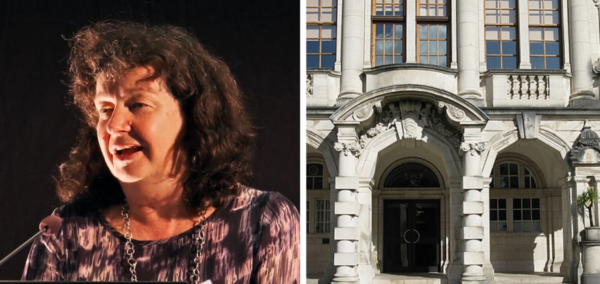
University of Cambridge’s 2024 mean gender pay gap at 16.7 per cent
Disparities remain high, particularly at senior levels
The mean gender pay gap for staff at the University of Cambridge in 2024, as per the Equal Pay Review, was 16.7 per cent, a fall from 17.1 per cent in the previous year.
Comparing statutory median hourly rates, the pay gap meant that during the 2023-24 academic year, women working at the university earned just 91p for every £1 earned by their male colleagues.
This pay gap equated to an average of £8,613 per year – while the average mean total female pay in 2024 was £42,992, the average mean total male pay was £51,606.
The gender pay gap at Cambridge was higher than the national average for the UK higher education sector, which stood at 11.9 per cent in 2022, according to the Higher Education Policy Institute think tank.
The university has, however, made progress over the last decade and a half in tackling the gender pay gap, with the disparity having fallen consistently from 24 per cent in 2008.
Lack of women at more senior pay levels
Women continue to be over-represented at the bottom level of the university, and under-represented at higher levels, according to statutory gender pay gap data. In 2024, female employees made up 55.5 per cent of employees at the university, but 62.7 per cent of employees in the lowest paid quarter, and just 42.5 per cent of employees in the highest paid quarter.
The under-representation of women was particularly acute at the very top of the university, with women making up just 28.7 per cent of employees in the university’s highest pay grade in 2024.
The average total pay gap was highest among Academic employees, at 15.1 per cent. Women also made up just 37.6 per cent of Academic staff at the university.
Of the university’s six Schools, the School of the Humanities and Social Sciences had the largest total gender pay gap in 2024, of 24.3 per cent. Women did not ou -earn men on average in a single School of the university in 2024.
In comparison, the Unified Administrative Service, the university’s central administrative body, had the smallest pay gap, at just 5.7 per cent.
Male employees received greater additional payments
According to data from the Equal Pay Review, male employees also disproportionately benefitted from other payments, both pensionable and non-pensionable, made to them by the university.
Men were paid on average £1,011 more than women in non-pensionable additional payments by the university in 2024.
Additionally, while women did receive 51.2 per cent of pensionable additional payments, men received 65.3 per cent of the value of these payments, again leaving female employees worse off comparatively.
Men also received 65.8 per cent of market-related payments by the university, designed to recruit or retain employees in competition with salaries outside the university.
More work to be done
Despite efforts by the university, and a positive trend in recent years, there is clearly still much work to be done to tackle the gender pay gap among employees of the university.
In 2023, Professor Deborah Prentice was appointed vice-chancellor of the university, as just the third female vice-chancellor in the university’s over 800 year history.
In its 2023-2024 Equality and Diversity Information Report, the university also said that it is “committed to the principles of equal pay for work of equal value.”
A spokesperson from the University of Cambridge said “The university is committed to tackling gender disparity. The main contributing factor within the university is that the distribution of people in different positions is not balanced, rather than people in the same positions being paid differently.
“This core issue is something we are actively working to address, and we are currently undertaking a detailed analysis of the university’s gender pay gap to identify its root causes and the interventions required to close it.”





















